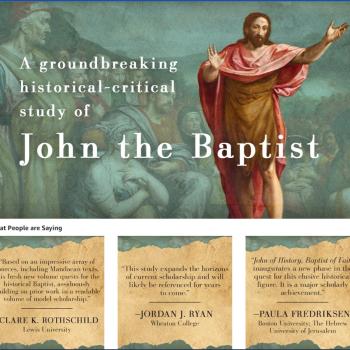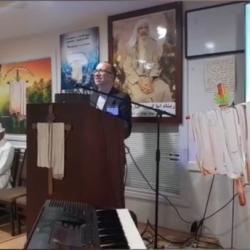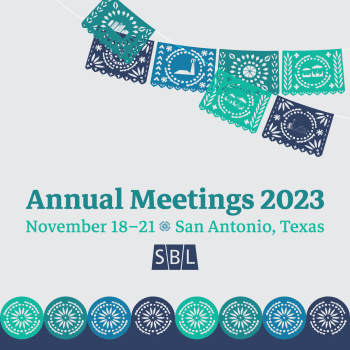One of the things that I got pushback about in my Enoch Seminar conference paper about the origins of Gnosticism, the Mandaeans, and pre-exilic Israelite traditions, which I shared a recording of here previously, is my use of the term “Gnosticism.” I was happy to get a chance to discuss that topic as well as many others related to my paper in this newly-released episode of the Talk Gnosis show. Here’s the YouTube video of our conversation:
Let me share some content of related interest. First, Jim Davila blogged about the Enoch Seminar. Here are his notes on day 3 and day 4, the latter including a brief response to my paper. April DeConick’s response was more positive. See her recent book note about Jewish Roots of Eastern Christian Mysticism.
I will talk to Tony Burke soon about the latest edited volume he has published: New Testament Apocrypha Vol.2 More Noncanonical Scriptures. I hope the following will both whet your appetite and help you be patient until we make that happen, hopefully soon.
https://www.apocryphicity.ca/2020/07/17/publicity-roundup-for-more-new-testament-apocrypha-2/
Tony Burke, ed. New Testament Apocrypha, Vol. 2: More Noncanonical Scriptures
http://eerdword.com/2020/07/20/five-questions-with-tony-burke/
https://ancientesotericism.org/2020/07/20/apocryphal-scriptures-in-english-translation/
Also related:
Yes, there are goddesses in the Bible
The Matrix movies were Gnostic, but apparently they were also about the transgender experience.
The interest the Mandaean texts have in the destruction of Jerusalem is one of the features that sets them apart among Gnostic texts and requires explanation. Jim Davila also shared a video reconstruction:
Those interested in ancient texts will also be interested in the Early Manuscripts Electronic Library, which Larry Hurtado mentioned on his blog a couple of years ago:
See too the Schoenberg Database of manuscripts
There’s a call for papers about Medieval magic
A Biblical whodunnit:
https://www.jweekly.com/2020/07/28/sfsu-professor-wins-cowan-literary-prize-for-biblical-whodunnit/
Ken Dark on the archaeology of Nazareth also connects inasmuch as the Mandaean term Nazorean still requires explanation (in historical terms if perhaps no longer linguistically).
Presumably something about reality and the universe is also of interest to those interested in Gnosticism.
Ben Witherington’s interview with Mike Heiser touches on things that intersect with my paper. Here are just a couple of the installments:
There are a number of relevant new books out, for instance on Psalm 91 and demonic menace, and Yahwistic diversity and the Hebrew Bible.
Finally, don’t forget that the Enoch Seminar Nangeroni Meeting in January will focus on John the Baptist, who was also given attention at the Episcopal Cafe:
https://www.episcopalcafe.com/the-prophet-who-lost-his-head/?utm_source=feedly&utm_medium=rss&utm_campaign=the-prophet-who-lost-his-head
This post was rather eclectic. Just like Gnosticism! I’ll have another conversation about the same paper and topic, which explored a range of different subjects as well as the same subjects in different ways, in the not-too-distant future. In the meantime, thank you for your interest!













